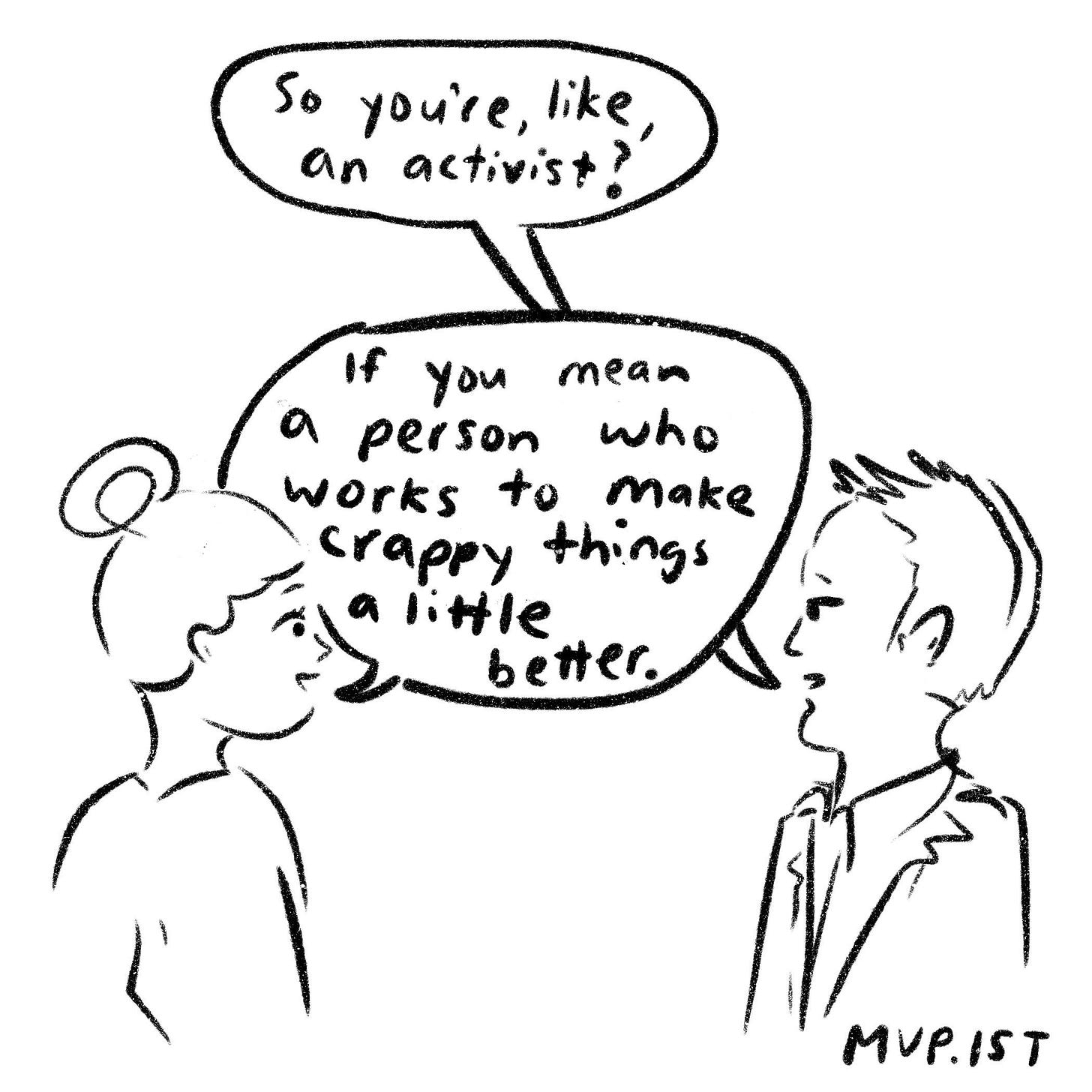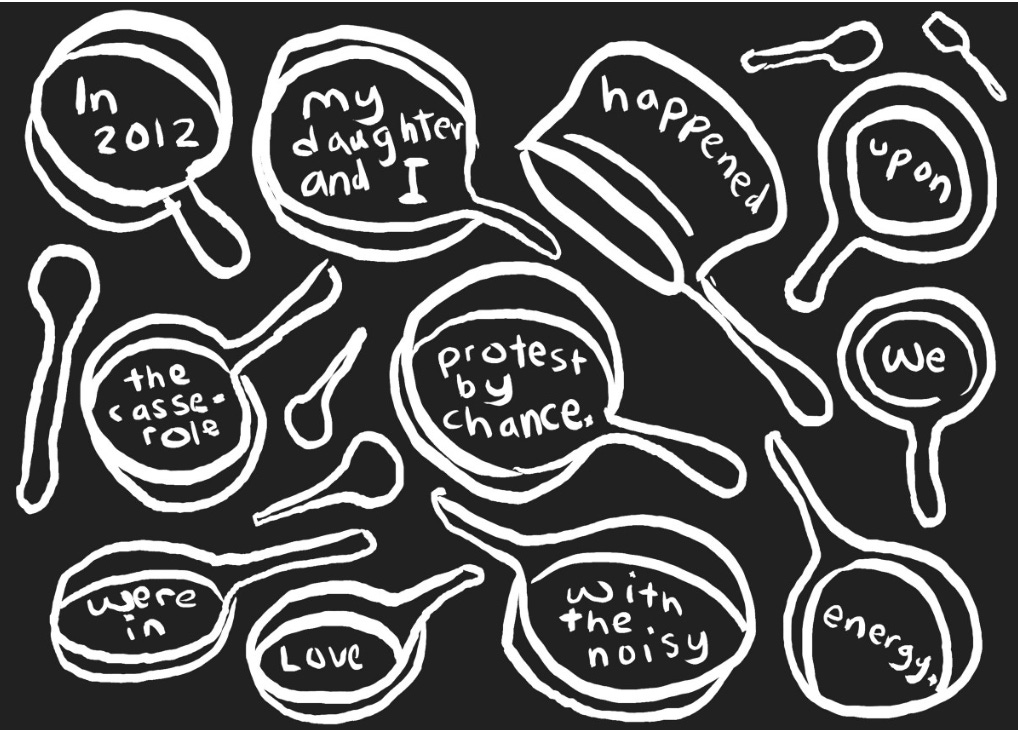Don't Use the A-word!
The activist albatross

At a talk I went to in Seattle months ago, the panelists picked apart the word activist and why they dislike it so much. Somehow, I’d never actively thought about it. But as soon as the semantic quartering began, I knew I was onside. Activist has always seemed like a club I didn’t have the street cred and Molotov bonafides to join.
In university I remember the PIRG types and the attendant woker-than-thou elitism. (Yes, I know woke was anachronism twenty years ago, but it was there in spirit). I remember a guy freaking out when I didn’t know what Stonewall was (I was a sunbaked Floridian. I also didn’t know what international development, The Tragically Hip, or kale were.) I remember the feeling that I had way too much learning to do and ambiguity to overcome if I was going to be an “activist.” So I went to concerts instead.
The Seattle panelists were chafing about labeling from the other side, though. Specifically, the presumption that the status quo is de facto good, and that activists are violent upenders of the peace. The verbal pigeonholing puts anyone suggesting even the mildest change into an adversarial position, when what they’re working for is often the opposite of adversarial. So much duh. Such a deft linguistic owning, used so ubiquitously I didn’t even think to question it. Were they protesting at Standing Rock, or protecting? More of the latter, no? Why is someone who wants something as basic as clean water an activist, and not just a defender of basic human rights?
The talk got to me because I realized this anti-progressive labelling had played a part in my own perceptions of so many things, and for someone who presumes to love words, I hadn’t investigated these ones very deeply. Though I support so many of the ‘protesters’ doing great work around the world, there’s always the mild hiccup that comes with aligning yourself with something that is positioned as contrary. It takes more work. It creates extra friction. The behavioural science term is disfluency.
Terms like activism also alienate so many fence-sitters. Ask an average human if they support protesters and they may demur. Ask someone if they support clean water, and they’re yours. And if the latter doesn’t work, it wasn’t the verbal gerrymandering that took them away from the side of good to begin with.
What can we do? Constantly investigate the language we see around us to open doors and reduce barriers. For those that self-identify as activists and protesters, great. For those that don’t, also great. For me, activism just tweaks my imposter syndrome. I’ll never be activisty enough. Activist feels full-time, irate, perfect. I’ll always feel a little too armchairy, even if I summon great change from my midcentury La-Z-Boy. And I don’t want to be labeled as an agitator when I advocate for things that are just common sense, like reducing waste, stopping the scourge of shirts with shoulder cut-outs, or halting our planetary demise.

As for protest, though I have cartoonishly enthused about the collective joy that comes from shouting down stupidity, I think it might be better to refer to these passionate gatherings as rallies or parties or actions or raves or confabulations. I want to enthusiastically stand up for education, the planet, and midday dance parties, even if I’m aggressively fighting inanity while doing so.
How do you describe yourself? What do you do? Who are you? What’s your sign? What did you advocate for this week? I wrote letters to Doug Ford, about patronage and planet, and planet patronage.
Thank you and welcome to all the new signups. You can always let me know how I can make this newsletter better by sending me puns and criticisms.
Unrelated/related: my husband, Ben (he who patiently removes all the unnecessary adjectives from these here newsletters), has started a dynamite newsletter, Get Wit Quick. It’s all about snapifying your language, and the first issue is about unicycle politics for pete’s sake. Subscribe!

